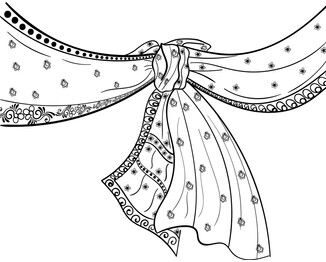TRANSLATED FROM BENGALI BY MANJIRA MAJUMDAR
I can never turn down Haru Da’s summons. And if there is a note of urgency as I detected in this one, I try to visit him at the earliest.
It was on a Sunday morning that I paid him a visit at the small house he has built on the southern fringes of the city.
Haru Da or Haradhan Lahiri is my friend, philosopher and guide. Why only mine? He mentors a whole lot of people I know. He has been engaged in what was known as swadeshi work during our Freedom Movement and married late in life, raising a huge family. Now a father of several children, mostly daughters, he has taken up a legal practice after having crossed over to this side of the border after Partition. .
“You have to solve this problem for me,” said Haru Da on seeing me, with a touch of pleading.
This was indeed strange. Da has been the one solving all our problems. In fact, as someone much younger than him, I often consult him whenever I need some advice.
Getting straight to the heart of the matter, he narrated the problem or rather the dilemma he was facing. On the surface it looked simple but was indeed a complex one. Among Haru Da’s six daughters, four were already married. A problem, he said, had risen in connection with his fifth daughter’s marriage. They had shortlisted a few prospective grooms but he was in a quandary over making that final choice, and hence he was seeking my intervention in the matter.
As we sat around the table, Haru Da started with the description of each and every one of the three candidates they had selected; we were in the presence of his wife and brother-in-law, who looked askance.
Candidate number one was a deputy magistrate employed with the state government. He belonged to an aristocratic family, loved all things literary, but did not own property. In addition he had a large family to take care of. Candidate number two was a businessman, with a car and house. No family tradition, little education. Candidate number three was a bank clerk, possessing his own flat in a posh area of the city and a house forcefully occupied in a refugee colony area. All his family members were well-settled. He was also blessed by a local politician. In short, he was as powerful as they come.
So where is the problem I enquired? Choose one and be done with it!
Haru Da said that they could not come to a consensus because of the differences within the family. He liked candidate number one but his wife preferred the second, while his brother-in-law wanted the third, and each of them had their good reasons. If an ‘educated’ groom was what Haruda wanted foremost, his wife wanted someone with ‘money’, and her brother felt someone with ‘power’ was the best in today’s times.
“Have seen so many well-educated types,” Haru Da’s wife or boudi opened her mouth at this juncture, “LLBs, gold medalists and all but when it comes to money – zilch. I want my daughter to live in utmost comfort. “
Obviously that was a dig at Haru Da, which I chose to ignore.
“No, no,” said Haru Da with a slight crack in his voice. “More than money, I want education as the top most qualification in a son in law!”
The brother-in-law tried to console them both. There is a need for education and money but to me power is equally important in today’s circumstances.
What is your daughter Champa saying? I interjected.
“She is not saying anything, replied Haru Da. She is, for now, showing an inclination towards her mother’s choice. But I know she will not choose an uneducated man.”
A sweet young lady pursuing Literature, Champa is smart and articulate. She is full of her professors, especially Anandita Dobson and loves to write long research articles.
“Could I speak to her alone?” I asked.
While munching on snacks and in between sips of tea, I asked Champa about her preference.
“None,” she replied.
“Then do you have someone in mind?” I enquired gently.
“Kaku, I will let you know in seven days,” she promised.
I came home after giving the family an assurance that I would return in a week to help them make the final choice.
But there was no need for me to go. I received Champa’s letter within seven days of her promise.
“Kaku,” she wrote, “Education no longer holds any value today. Money is indeed very crucial. In addition to it is power. The ones chosen by Ma and my Mama have money and power respectively but in a limited sort of way. Two days back I married Gouri – Kalitala’s Gourishankar Shaw. You all know him as the “mastaan” of this locality but I know him as someone who is extremely wealthy and very powerful. He is not under the protection of any minister – rather the ministers and political leaders are under his protection! I am now with him and feel so protected. I know that my family and relatives will get over their shock, anger and hurt and start to sing his praise. So you will be happy Kaku, if not for anything else but that you are relieved of a difficult responsibility – Champa”
Also, read Poems by Henri Meschonnic, translated from French by Don Boes and Gabriella Bedetti, and published in The Antonym.
Follow The Antonym’s Facebook page and Instagram account for more content and exciting updates.




























0 Comments